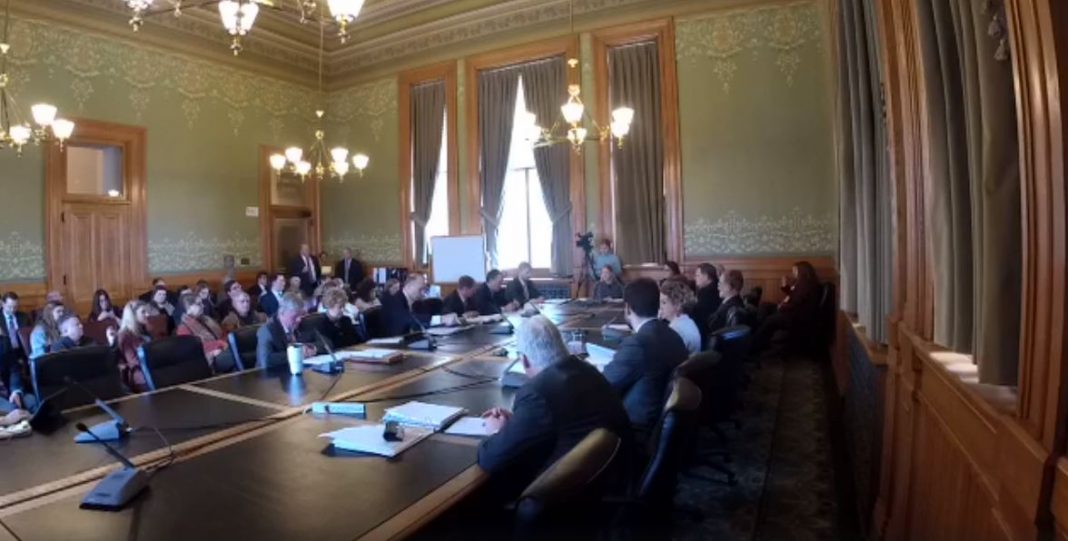It was small, but it was a start for education savings accounts in Iowa. Senate File 372 was amended and passed through the Senate Education committee on Wednesday.
“What this bill does is really allow choice in education for students,” said Republican Sen. Jerry Behn.
Behn said the top factor in determining how well a child does in school is the involvement of parents.
Democrat Sen. Claire Celsi said Sen. Brad Zaun said he wouldn’t support the bill if it didn’t have the same accountability as the public schools. That’s not in the bill, Celsi said.
“There’s some really disturbing provisions in this bill,” Celsi said.
Fellow Democrat Sen. Jackie Smith talked about her background as a speech language pathologist for 34 years. She believes the bill has serious negative consequences for students. Funding and oversight concerns dictate Smith’s opposition to the bill, she said.
Democrat Sen. Zach Wahls said he fears the bill will create an incentive for school districts to push kids out who are contributing to the deficit of educating special ed students.
Senator Herm Quirmbach, another Democrat, simply said the bill isn’t ready for prime-time. He said private schools cherry-pick their students and the bill could force schools in rural towns to close.
Republican Sen. Ken Rozenboom talked about the bill.
“The theme that I heard expressed two or three times, essentially says that nobody can do it better than the state,” Rozenboom said. “I reject that.”
Parents, Rozenboom said, will have the best interests of their children at heart. Using public funds for private education has happened for 50 years in Iowa, he said, citing the Iowa Tuition Grant. Public dollars are also used for private education for pre-kindergarten.
Zaun said Sen. Celsi must have misunderstood what he said at the subcommittee. He acknowledged he said the accountability should be the same for public schools and nonpublic schools. He said he also suggested in subcommittee to start with special ed students and those in kindergarten.
“This is a step in parental choice,” he said.
Zaun pointed to Arizona as an example. Two schools for blind children were compared. One was a public school, another private. Both have 2,000 students. The public school had a $53 million budget. The alternative had an $8 million budget. The public school for the deaf and blind saw its graduates leave reading at an eighth-grade level. Seventy percent of those graduates are unemployed.
The private alternative had a 92 percent rate of graduates going to college. Its unemployment rate is five percent.
Behn finished the discussion expressing some concern after one senator said children have to take these children while another senator said schools might kick them out.
“What this bill does is empowers parents — pure and simple,” Behn said. “If you are not interested in doing anything with this bill, you don’t have to do anything. You can do nothing. It is 100 percent voluntary.”
Behn said that he and Zaun met an individual who was told by their school system she would not walk or talk. Yet she walked into the room that Behn and Zaun were in and she talked.
“She had a bright future in front of her and it was all because of parental involvement and parental choice,” Behn said.
The amendment, as well as the bill, passed by an 8-7 vote. All of the Democrats voted against the bill while Republican Senators Chris Cournoyer and Mark Lofgren joined them in opposition.












